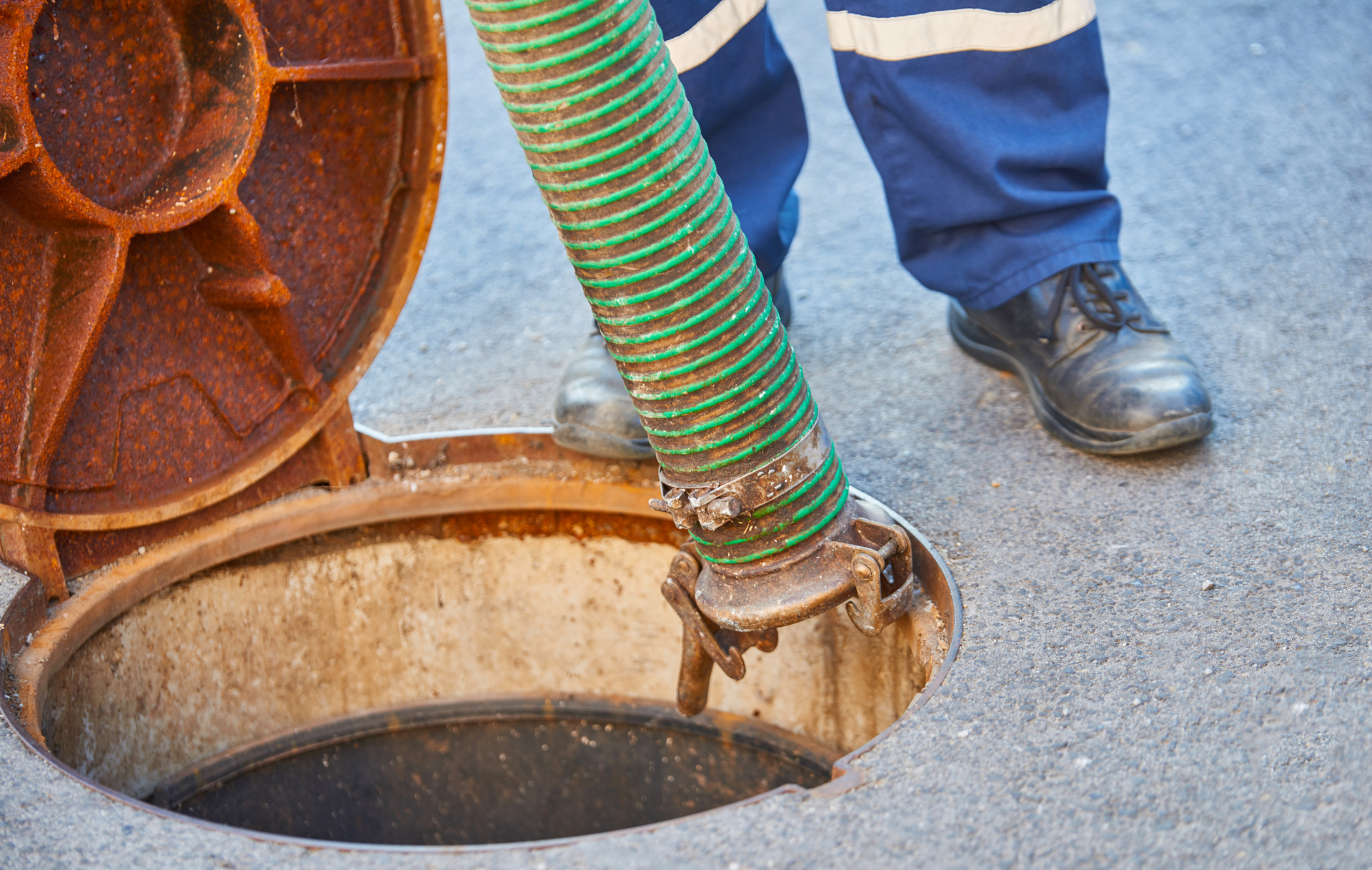The Ultimate Guide: How Often Should You Pump Your Septic Tank in Oxford, MS?
October 30, 2023
This is a subtitle for your new post
If you own a home in Oxford, Mississippi, with a septic system, you likely understand the importance of regular maintenance to keep it functioning efficiently. Among the most critical aspects of septic system care is septic tank pumping. But how often should you pump your septic tank in Oxford, MS? This comprehensive guide will answer that question and provide valuable insights into the factors that influence septic tank pumping frequency.
Understanding the Basics: Why Septic Tank Pumping Matters
Before delving into the frequency of septic tank pumping, let's establish why this maintenance task is essential. Septic tanks are designed to hold and treat wastewater from your household. Over time, solid waste and sludge accumulate at the bottom of the tank, while lighter materials like grease and scum float to the top. Proper maintenance involves periodically removing these accumulated solids to prevent them from clogging the system.
Neglecting septic tank pumping can lead to various issues, including:
System Backup: When solids accumulate to a certain level, they can block the outlet pipe, causing wastewater backups into your home.
System Failure: Excessive sludge buildup can lead to the failure of your septic system, requiring expensive repairs or even a full replacement.
Contaminated Drainfield: If solids enter the drainfield, it can clog the soil's pores, reducing its ability to treat wastewater and potentially causing environmental harm.
Foul Odors: Neglected septic tanks can emit unpleasant odors, making your outdoor environment less enjoyable.
With these potential problems in mind, let's explore how often you should pump your septic tank in Oxford, MS.
Factors Influencing Pumping Frequency
1. Household Size: The number of people living in your home significantly affects septic tank pumping frequency. Larger households generate more wastewater and, consequently, more solids in the tank. As a general guideline, a family of four in Oxford, MS, might need their septic tank pumped every 3 to 5 years.
2. Tank Size: Septic tanks come in various sizes. Larger tanks can hold more waste and may require less frequent pumping. Conversely, smaller tanks fill up faster and need more frequent attention.
3. Water Usage: Your household's water usage habits influence how quickly the septic tank fills. High water consumption, excessive laundry, and frequent dishwashing can lead to more wastewater entering the tank.
4. Septic Tank Maintenance: Regular maintenance, including annual inspections and septic tank treatments, can help extend the time between pumpings. These efforts can break down solids and prevent rapid buildup.
5. Local Regulations: Local health departments in Oxford, MS, may have specific guidelines for septic tank pumping frequency. It's essential to check with local authorities to ensure compliance with regulations.
6. Age of the System: Older septic systems may require more frequent pumping, as they might not function as efficiently as newer ones.
7. Garbage Disposal Use: Using a garbage disposal can increase the solids entering your septic tank, leading to more frequent pumping requirements.
8. Chemical Use: The use of certain chemicals, such as antibacterial soaps and harsh cleaning agents, can disrupt the septic tank's bacterial balance, affecting its efficiency and potentially requiring more frequent pumping.
9. Soil Type: The type of soil in your Oxford property's drainfield can impact how quickly wastewater is absorbed and treated. Certain soil types may necessitate more frequent pumping to prevent system issues.
Signs Your Septic Tank Needs Pumping
Apart from considering these factors, it's crucial to be vigilant for signs that your septic tank needs pumping. Recognizing these indicators early can help prevent costly septic system problems. Look out for:
Slow Drains: If you notice slow drainage in sinks, showers, or toilets, it might be a sign that your septic tank is full.
Foul Odors: Unpleasant odors around your septic tank or drainfield area can indicate that it's time for pumping.
Pooling Water: Water pooling around the drainfield or near the septic tank is a clear indication of system overload.
Sewage Backup: If wastewater starts backing up into your home, it's a severe sign that your septic tank is full and needs immediate attention.
Professional Septic Tank Pumping in Oxford, MS
When it's time to pump your septic tank, it's essential to hire a professional septic service provider in Oxford, MS. Septic tank pumping is not a DIY task, as it requires specialized equipment and knowledge. Here's what you can expect from a professional septic tank pumping service:
Inspection: The technician will inspect your septic tank and assess the thickness of the accumulated solids.
Pumping: Using a powerful vacuum truck, they will pump out the solids, scum, and wastewater from your septic tank.
Thorough Cleaning: The tank will be cleaned thoroughly to ensure no residues are left behind.
System Check: After pumping, the technician may perform a system check to ensure all

Navigating the regulations surrounding septic systems is crucial for homeowners and businesses to ensure compliance, protect public health, and safeguard the environment. In this guide, Oxford Septic Services provides valuable insights into septic system regulations, offering clarity and guidance for property owners. Chapter 1: Regulatory Overview Oxford Septic Services provides an overview of the regulatory landscape governing septic systems, including local, state, and federal regulations. Understanding the regulatory framework is essential for property owners to comply with legal requirements and avoid potential fines or penalties. Chapter 2: Permitting Requirements Property owners may be required to obtain permits for the installation, repair, or modification of septic systems. Oxford Septic Services explains the permitting process, including the application requirements, approval procedures, and associated fees, to help property owners navigate the process successfully. Chapter 3: Inspection and Maintenance Requirements Many jurisdictions have inspection and maintenance requirements for septic systems to ensure proper functioning and prevent environmental contamination. Oxford Septic Services outlines these requirements, including the frequency of inspections, maintenance tasks, and reporting obligations, to help property owners fulfill their regulatory obligations. Chapter 4: Environmental Considerations Septic systems can impact groundwater quality, surface water contamination, and sensitive ecosystems if not properly maintained. Oxford Septic Services discusses the environmental considerations associated with septic systems, emphasizing the importance of responsible waste management practices to protect the environment and public health. Chapter 5: Compliance Assistance Complying with septic system regulations can be complex, but Oxford Septic Services offers assistance to property owners. Whether it's helping with permit applications, conducting inspections, or providing maintenance services, Oxford Septic Services ensures that property owners have the support they need to meet regulatory requirements. Chapter 6: Future Trends and Developments Regulations governing septic systems are subject to change as new technologies emerge and environmental concerns evolve. Oxford Septic Services discusses future trends and developments in septic system regulations, helping property owners stay informed and adapt to regulatory changes proactively. Conclusion: Understanding septic system regulations is essential for property owners to maintain compliance, protect public health, and preserve the environment. With insights from Oxford Septic Services, property owners can navigate regulatory requirements confidently and ensure the proper functioning of their septic systems for years to come.

Septic system failures can be costly, inconvenient, and hazardous to both property and health. Fortunately, with proper maintenance and proactive measures, many septic system failures can be prevented. In this guide, Oxford Septic Services shares valuable tips to help homeowners and businesses avoid septic system failures and ensure the long-term functionality of their systems. Chapter 1: Regular Maintenance Inspections Routine maintenance inspections are essential for identifying potential issues early and preventing costly repairs. Oxford Septic Services recommends scheduling regular inspections to assess the condition of your septic system and address any problems before they escalate. Chapter 2: Timely Septic Tank Pumping Regular septic tank pumping is crucial for removing accumulated solids and preventing clogs and backups. Oxford Septic Services advises homeowners to adhere to a consistent pumping schedule based on factors such as household size and usage to maintain optimal tank capacity. Chapter 3: Proper Waste Disposal Practices Improper disposal of household waste can overload septic systems and lead to system failures. Oxford Septic Services recommends avoiding flushing non-biodegradable items, grease, and chemicals down drains and toilets to prevent clogs and damage to the system. Chapter 4: Protecting the Drain Field The drain field plays a critical role in wastewater treatment and dispersal. To prevent drain field failure, Oxford Septic Services advises property owners to avoid parking vehicles or installing structures over the drain field and to maintain proper landscaping to prevent root intrusion. Chapter 5: Prompt Repairs and Maintenance Addressing minor issues promptly can prevent them from escalating into major septic system failures. Oxford Septic Services recommends contacting a professional at the first sign of trouble, such as slow drains, foul odors, or sewage backups, to prevent further damage. Chapter 6: Environmental Awareness Understanding the environmental impact of septic system failures can motivate property owners to prioritize proper maintenance and care. Oxford Septic Services emphasizes the importance of responsible waste management and eco-friendly practices to protect local water sources and ecosystems. Conclusion: By following these tips from Oxford Septic Services, homeowners and businesses can take proactive steps to prevent septic system failures and maintain the functionality of their systems for years to come. With regular maintenance, proper waste disposal practices, and prompt repairs, property owners can avoid costly and disruptive septic system failures and enjoy peace of mind knowing their systems are in good working order.
